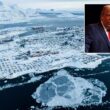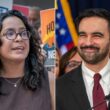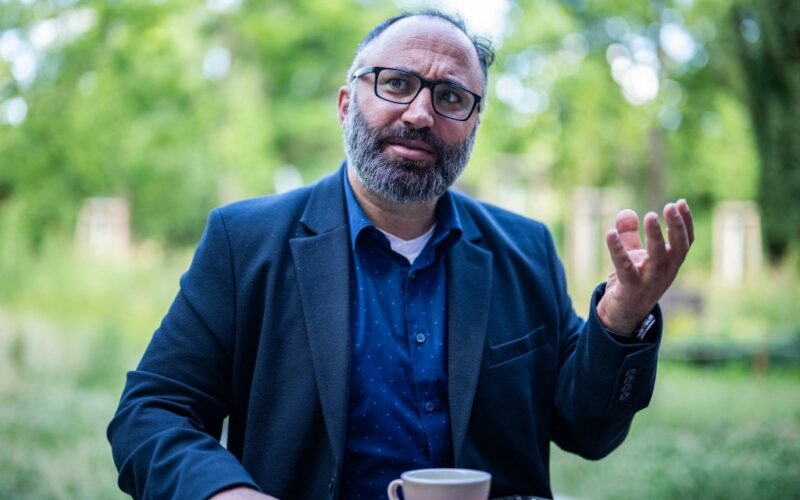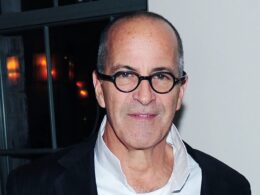I was on my fifth pass through a gauntlet of Israeli soldiers along a road in the West Bank when one motioned for me to stop and asked where I was going. I said I was trying to reach a café in Hebron’s downtown. He directed me up a short hill.
I’d already tried that way, through streets barricaded with concrete blocks and barbed wire. Did he mean toward the police station up the hill? He said yes.
I drove to the station entrance. A dirt road to my left, unmarked but well-lit, was the only way forward. I followed it — another dead end. A voice behind me yelled, “Turn the car off and hold your hands out the window.” Officers arrived, searched my car and belongings and took me into the station.
I’d arrived in the city hours earlier to interview Issa Amro, a Nobel-nominated Palestinian activist who leads nonviolent opposition to Israeli settlements in Hebron, the second-largest Palestinian city in the West Bank.
Once detained, I was brought to a room for interrogation. My interrogator alternated between questioning why I wanted to interview Amro, probing my political views and insisting I wasn’t a journalist. He knew I was lying, he said, and accused me of being a member of various organizations. “We have the evidence,” he kept saying.
He asked for passcodes to my phone and laptop. I refused, saying I wasn’t comfortable with his line of questioning. He confiscated them and my passport temporarily. I was released after nine hours, with documents stating my grounds for arrest: “Danger to the safety of person/public/state.”
Amro told me by phone the next day that he was sure the soldier directed me toward the police so I’d be arrested, saying it reflects Israeli authorities’ efforts to isolate him and other Palestinians who want to speak to the world about ending the occupation through nonviolent means.
“They don’t want stories to come out from the Palestinian people,” Amro said. “They don’t want peace voices. They don’t want non-violence voices. They want only violent and certain types of Palestinians represented.” Since Oct. 7, 2023 — when Amro says he was arrested, bound, gagged and tortured by Israeli soldiers joined by settlers wearing military uniforms — multiple international journalists have been prevented from visiting him, he said.
When Palestinian voices are suppressed or ignored, the global community is deprived of their ideas for ending violence long viewed as unfortunate but inevitable. The consequences are lethal. Palestinians are collectively blamed for not saying or doing things many have been saying and doing. Western audiences absorb coverage of militant acts by a narrow segment of the Palestinian population while the intellect and insights of the rest are largely ignored by disinterested media institutions.
A 2020 study found that of the nearly 2,500 opinion pieces discussing Palestinians in The New York Times between 1970 and 2020, less than 2% were written by Palestinians. At the Washington Post, it was 1%. In 50 years, none of The New Republic’s nearly 500 such pieces had a Palestinian author.
We suffer consequences for selective listening. Governments that want to stifle dissent often adopt repressive methods proven effective elsewhere, especially from close allies. The Trump administration imprisoning students might surprise Americans less if we were used to hearing from Palestinians jailed on charges of incitement for protesting Israeli policies. In April, a Michigan immigration attorney was held at Detroit’s airport by federal agents who requested his phone’s passcode.
For decades, Palestinians have explained their experience of treatment the U.S. tacitly or openly supports. Those were warnings. Similar tactics can be deployed here to suppress popular movements deemed threatening by a given administration, and not just President Trump’s. During Joe Biden’s last year in office, Israeli historian and self-described anti-Zionist Ilan Pappe was questioned by federal agents about his political views.
The highest price is paid in Gaza. Its residents were calling out to the world well before Oct. 7. They carried signs written in English at demonstrations, spoke through art like “The Gaza Monologues” and held their dead children aloft in front of news cameras. Hamas rockets make headlines, but when there weren’t any, who was listening to Gazans?
We should be far less comfortable talking about Palestinians than to them. Readers and viewers should be skeptical of news reports and commentary that doesn’t feature Palestinian voices, awarding no points for non-Palestinians speaking for them.
There’s a direct correlation between devaluation of a group’s words and devaluation of their lives. The many thousands of bodies beneath Gaza’s sands are proof.
Danney is a journalist based in Brooklyn.








